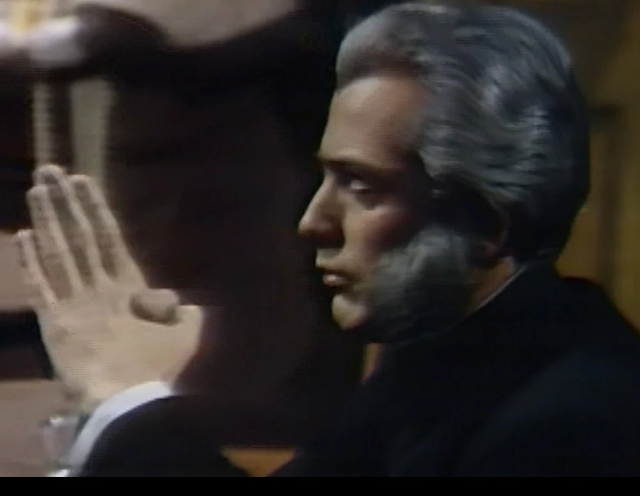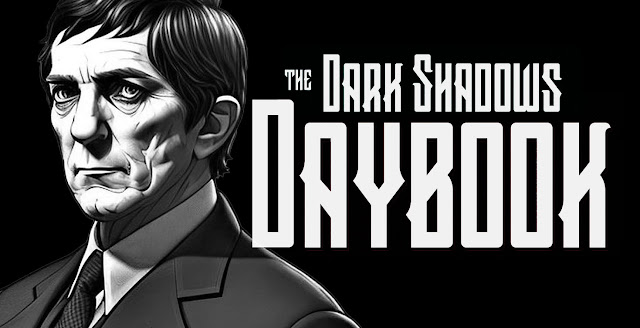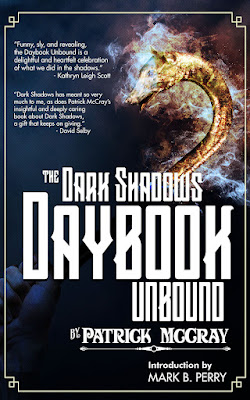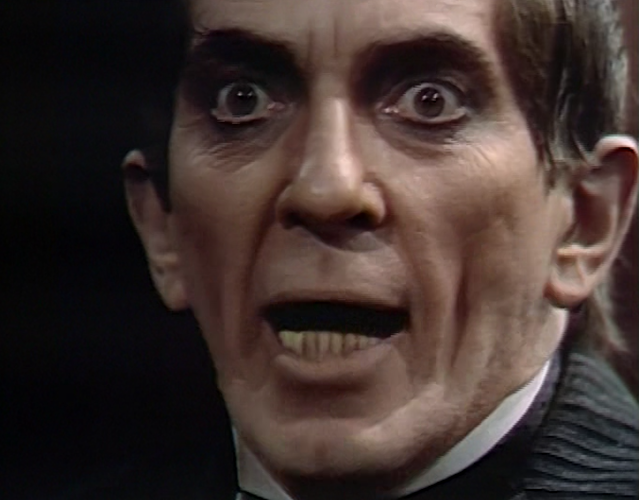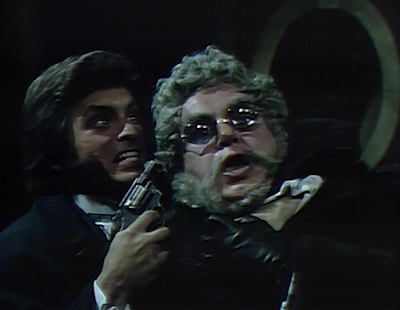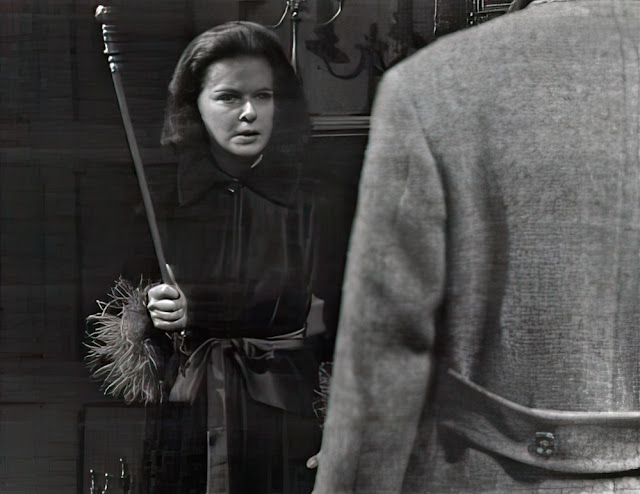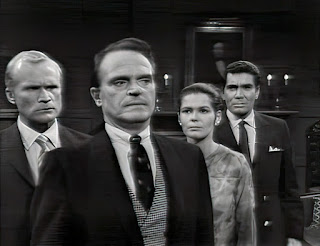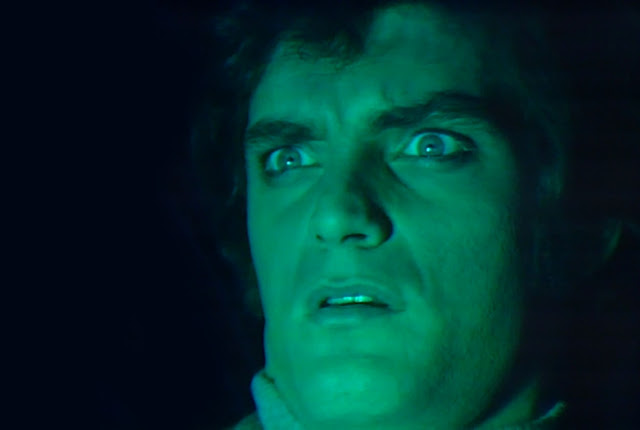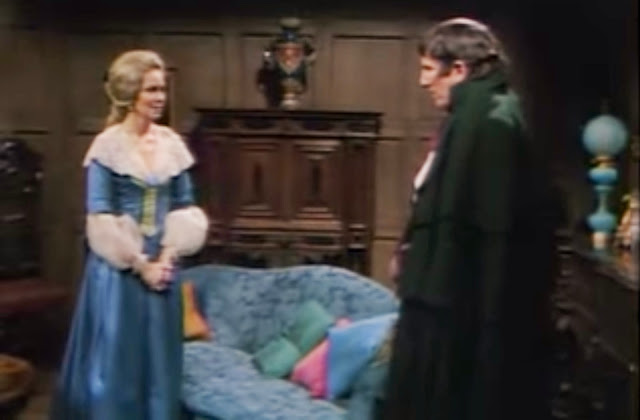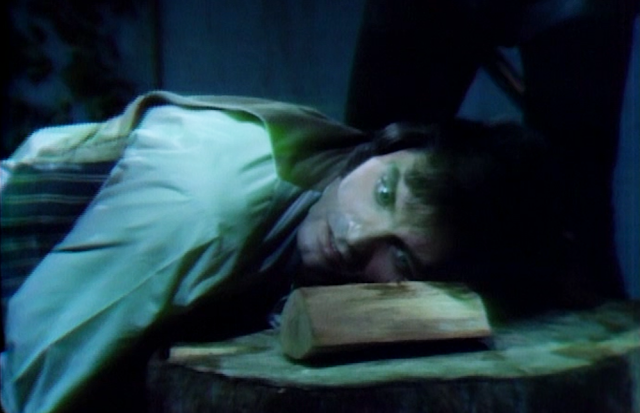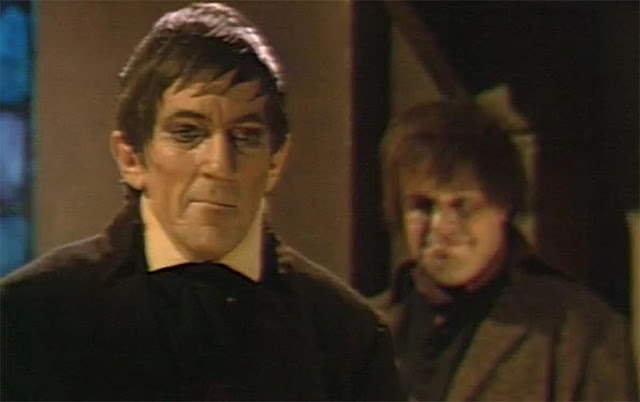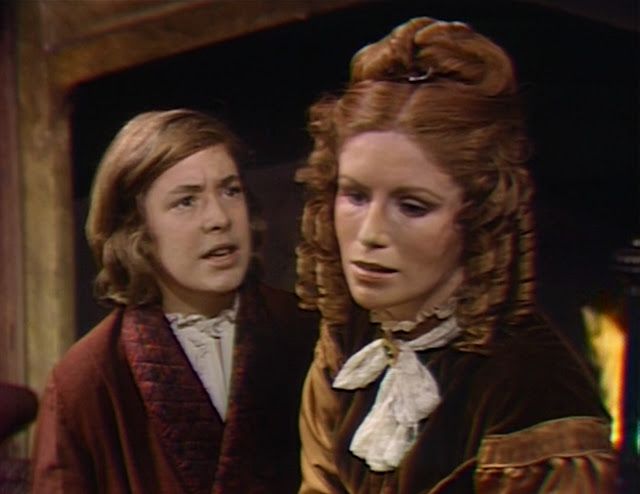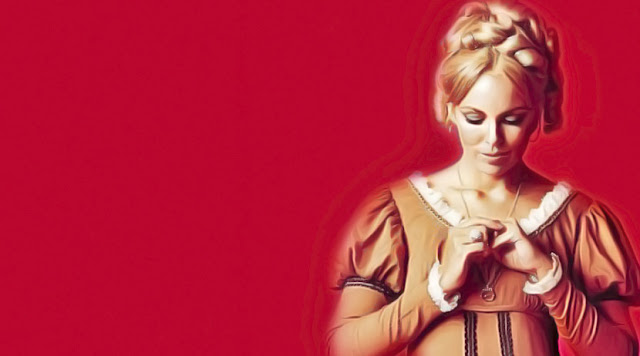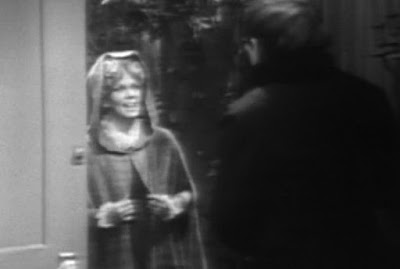By PATRICK McCRAY
Taped on this day in 1969: Episode 751
When Quentin transforms into a wolf, no one is safe. As others succumb to fear, will Trask let go of his? Dorcas: Gail Strickland. (Repeat; 30 min.)
After Beth sees Quentin transform, she begs Rachel for help… yet can’t tell her why. Meanwhile, Trask conspires to lure Rachel back to Worthington Hall by mixing threats to Jamison with reminders of her alleged crimes. He is aided by a jealous faculty colleague of Rachel’s, the lovely Dorcas Trilling. Dorcas all too happily aids Trask in his misdeeds. Quentin, as the werewolf, appears at Worthington Hall and slaughters Dorcas. Later, Beth finds a disheveled and bloody Quentin waking up on the entryway floor at Collinwood.
All stories are about suspense. All stories are about heroes. All stories are about mistakes. Boring stories make that a flat intersection with a very slow red light. Great stories allow them to criss-cross like those singing kids who wore their pants on backward. And also like the multilevel skyways crushed by Freder and pals in Metropolis. They intersect smoothly, surprisingly, and without interrupting each other. And only from a certain point of view, Luke.
Boring stories versus great stories. And Dark Shadows is which kind?
751 is bookended by Quentin Collins as a very anguished and then confused Clark Kent, going to and from his double life as the shaggiest Superman in the Rolodex. It's not necessarily the most immediate comparison to consider, but in the cosmic scheme, it fits eerily well. This only works in the context of Dorcas. Yes, Dorcas. No, not you! I mean, yes, that's the character's name. I would never call you that. Largely because it's probably not your name. It comes from the Bible, and we need to return it to the Bible by 6:00, or else we get charged for using it the entire night. We won't need Dorcas long.
Her brutal mutilation really peps up an episode devoted to the study of lying. And it certainly gives us a prime peck of pickled prevarications from which we can pick. For reasons good and bad. Beth is simply trying to secure as much help for Quentin as possible without mentioning that it’s related to an occult transformation. So, that’s good. But then we have Gregory Trask looking Dorcas straight in the eye and explaining that confinement and starvation are for Jamison’s own good. That’s bad. He is in one of his most priapic moods, as well, and extorts his way into a visit from Rachel. Jerry Lacy is given plenty of mutedly randy dialogue to recite, and it is a tribute to his subtlety and sense of taste that he pulls it off for the delight of the audience without tipping off Dorcas, a character smitten with Trask, and willing to turn a blind eye to actively keeping and starving a hostage. A child hostage.
Clearly, it's a quietly nasty installment. Beth and Rachel flail about in helpless ignorance. Trask goes back and forth on the right amount of food to deny Jamison to wring out maximum levels of misplaced guilt from Rachel. For an episode that starts with Quentin’s excruciating transformation into the wolf, it’s in no danger of exploiting the creature. It slides precariously near the humdrum as we see Dark Shadows again serve up its blue plate special of Horrible People Gloating.
Then Wolf-Quentin smashes into Worthington Hall, kills Dorcas, and vanishes into the night.
Okay, yes, it’s Dickensian coincidence, but that’s the point. There is no reason for Quentin to seek out and attack Dorcas. As with the appearance of most short-timers on the show, the introduction of Dorcas precedes her inevitable sacrifice on the altars of stakes and suspense. It becomes a strangely cosmic statement, where the series regulars become Sam Fuller’s Four Horsemen from The Big Red One, doomed to live, while everyone else is just another pin cushion of Damocles. In a show rife with class tension, here is another take on haves and have-nots. As unfair as it is accurate. But the universe is built on thermodynamic balance.
I was deeply satisfied by the wolf’s choice of victims. She was volitionally cruel, and Dark Shadows has quite enough of that, thank you. However, Quentin, even in his lupine delusions, had no real reason to attack that location with such surgical precision. But perhaps he followed Rachel? Perhaps he sensed Jamison’s peril? Perhaps the universe sent him there as a reminder that actions have consequences, and acts must be cleaned up but pronto. He’s not the hero of the episode; the very mechanism of the plot is. And there is a vast comfort in that. It's about time the universe took a break from all the entropy, already.
The story gods revel in saving just a few of the right people. Dark Shadows knows that we are not the right people. After all, we have the time to watch TV, and you never hear about a luxury like that at Collinwood. But although we may not be the stars, we are not necessarily doomed. The formula is simple.
Life: just don’t be a Dorcas about it.
This episode hit the airwaves on May 6, 1969.

